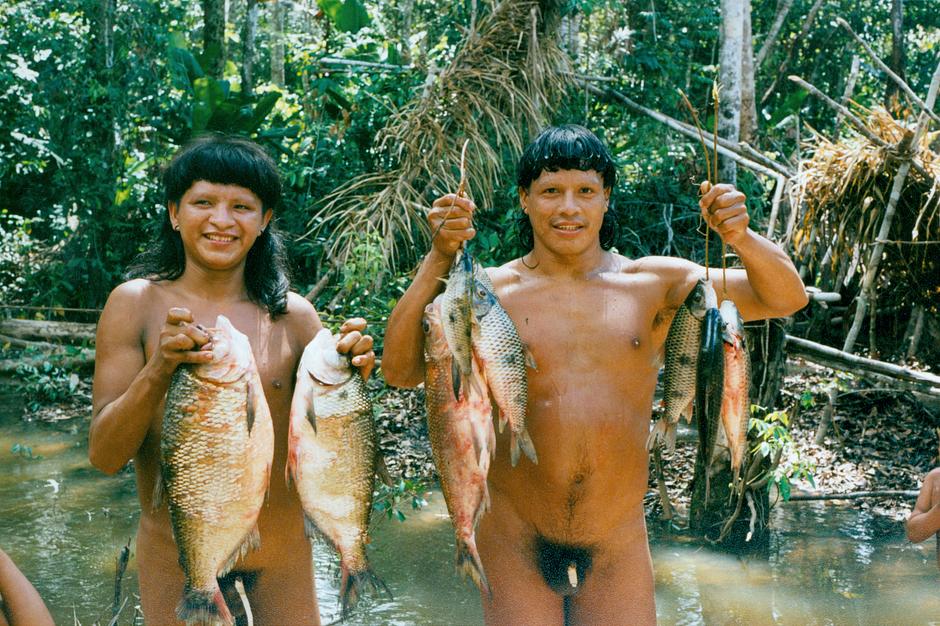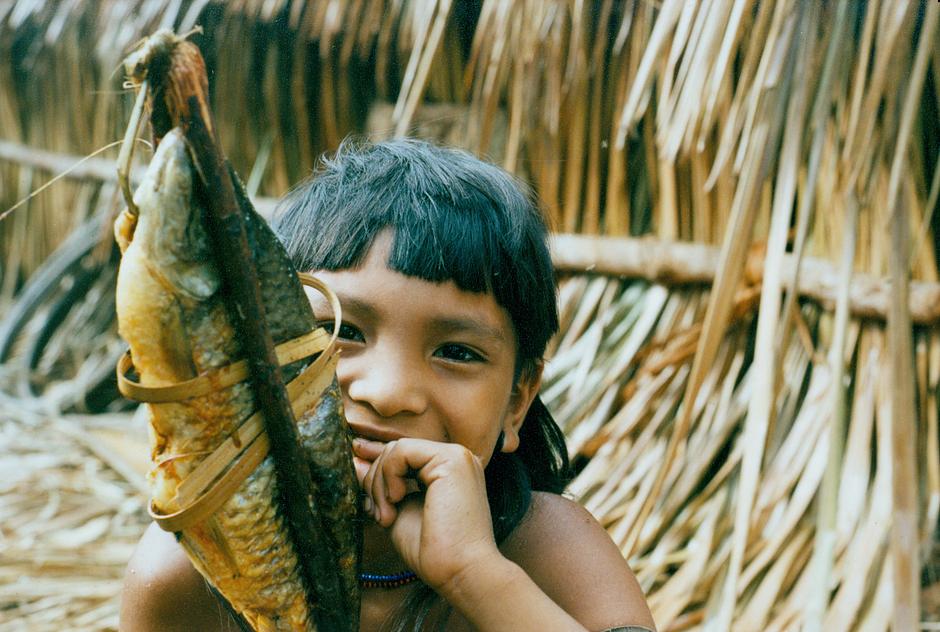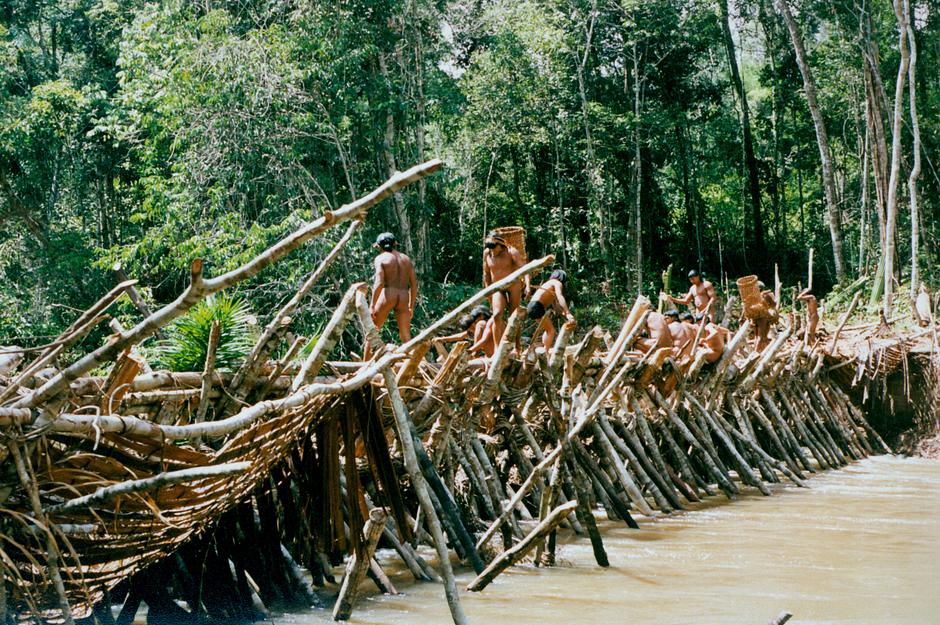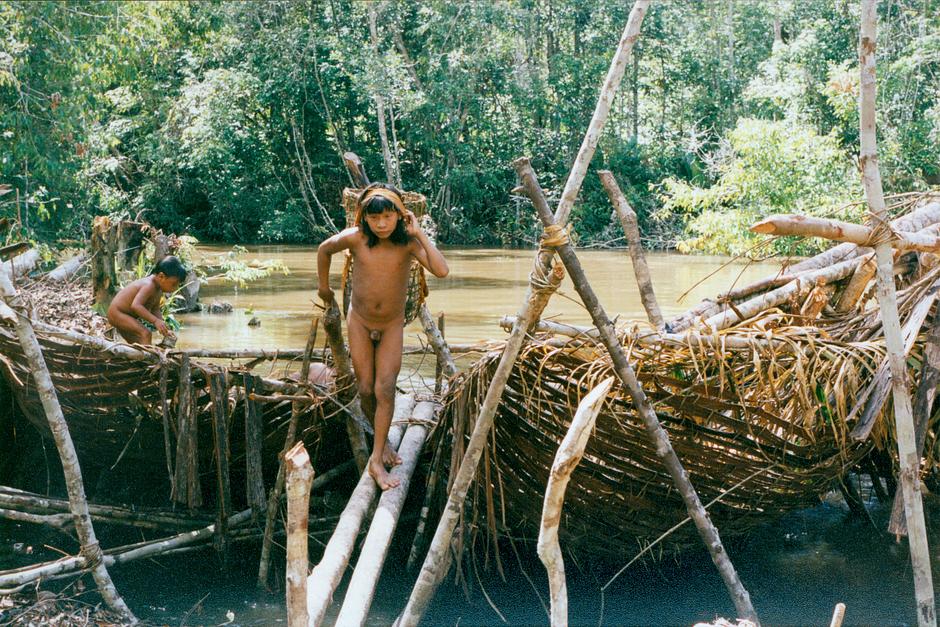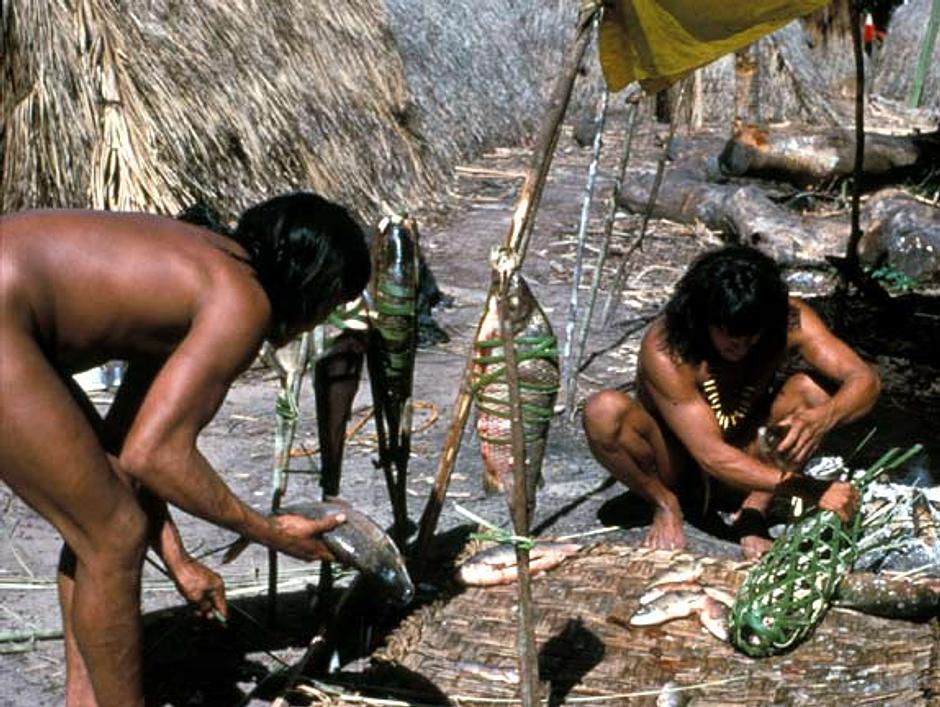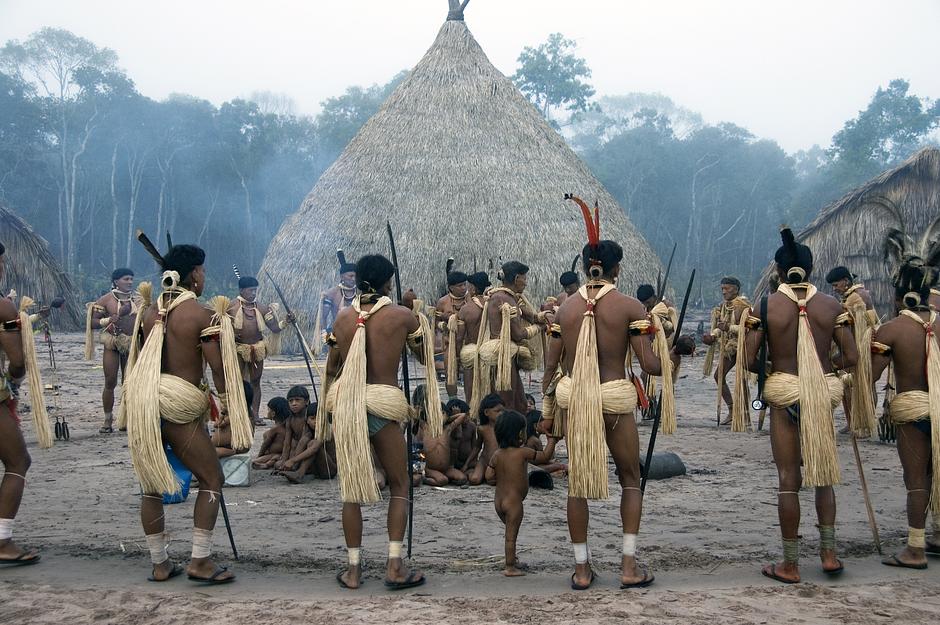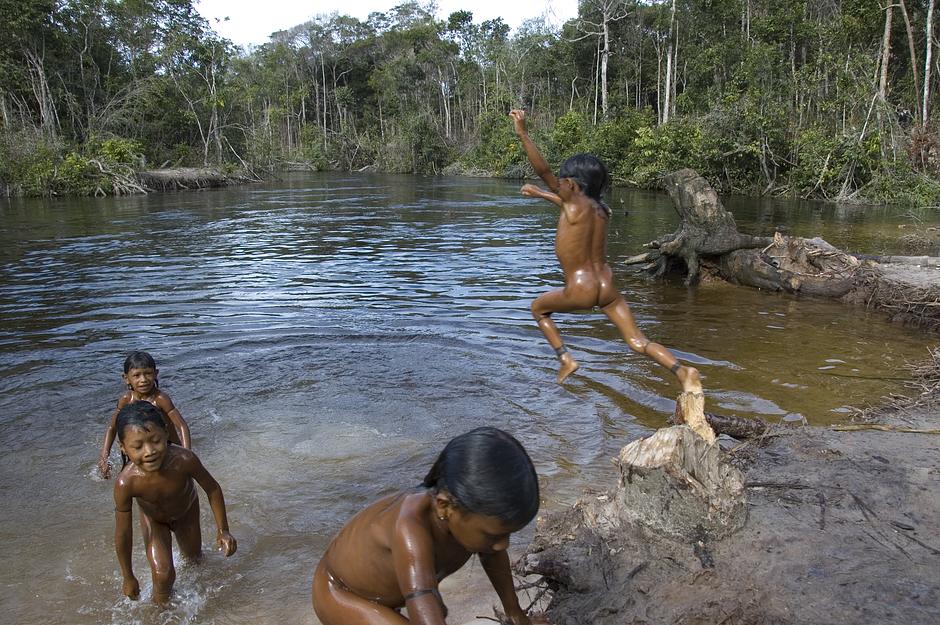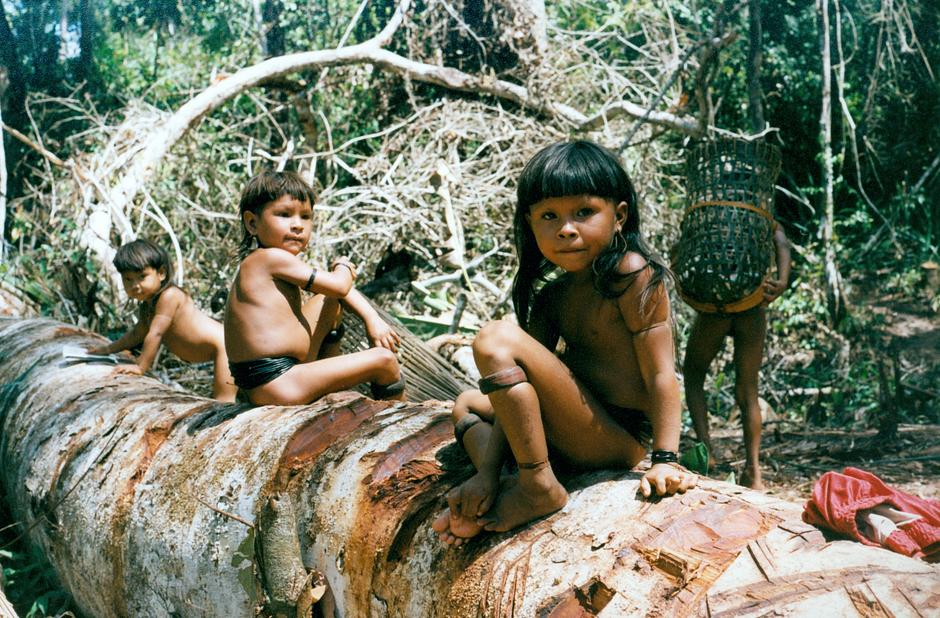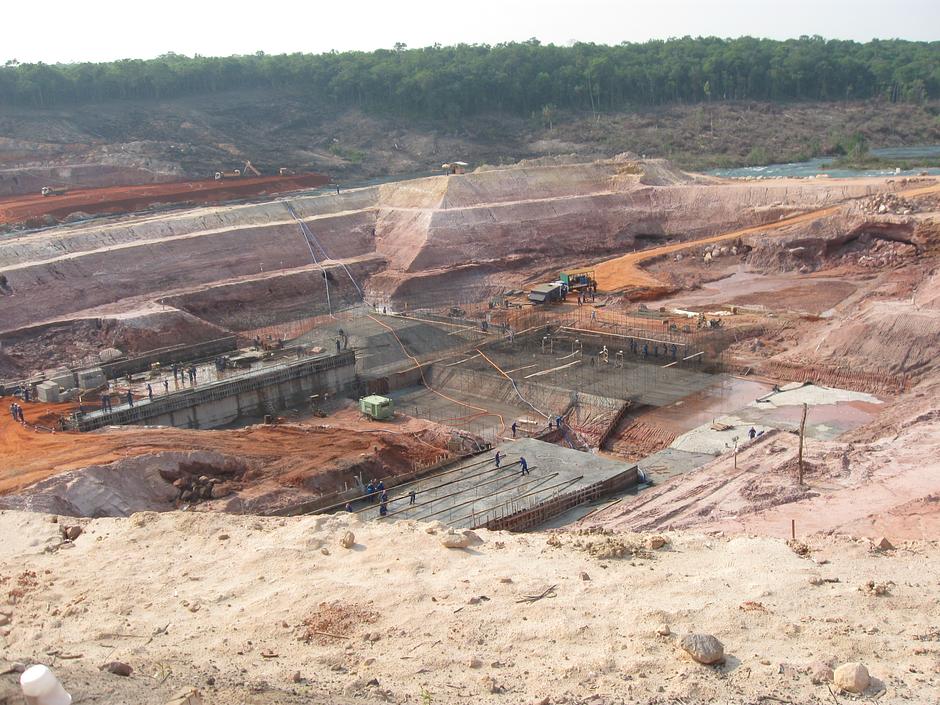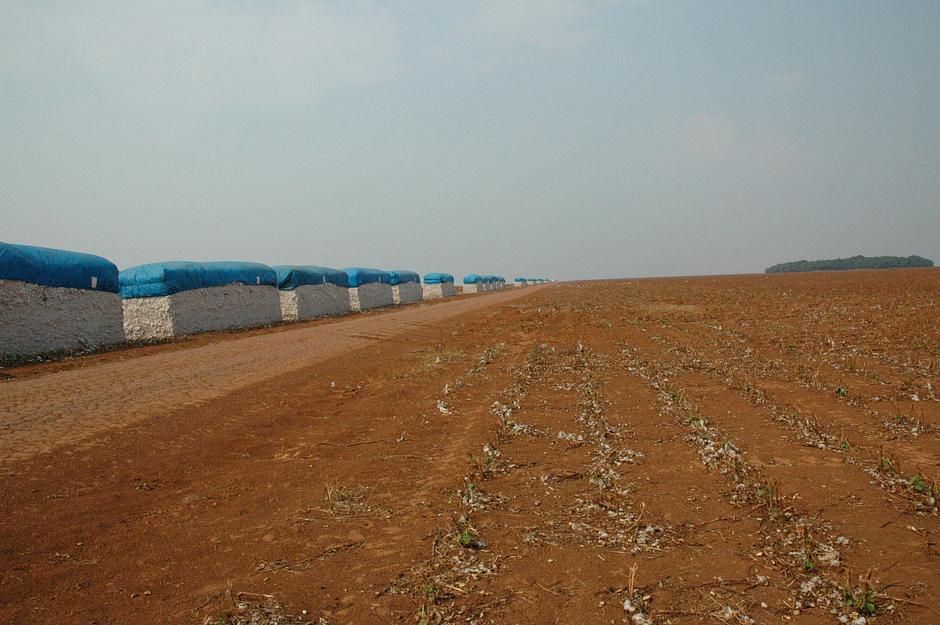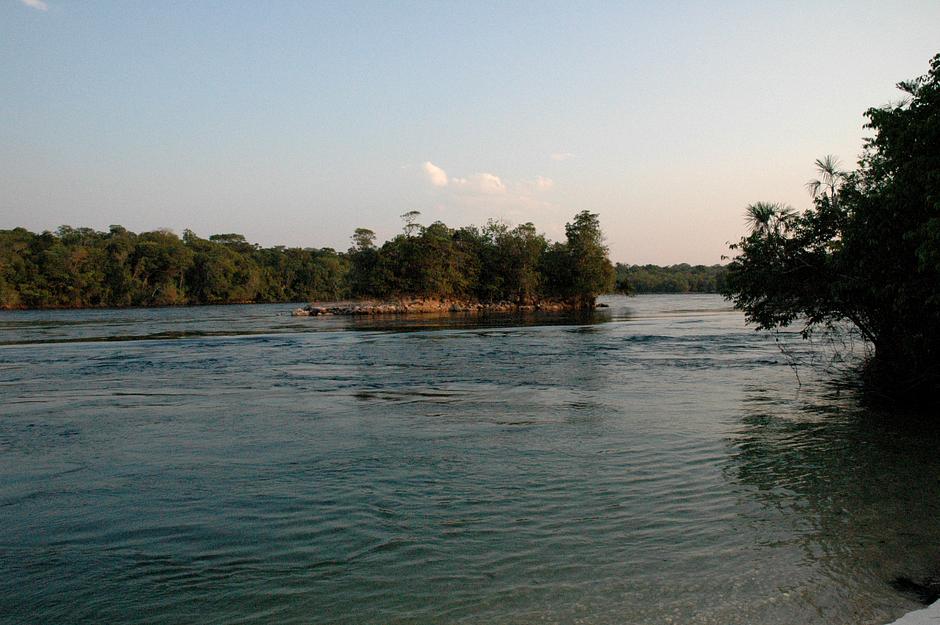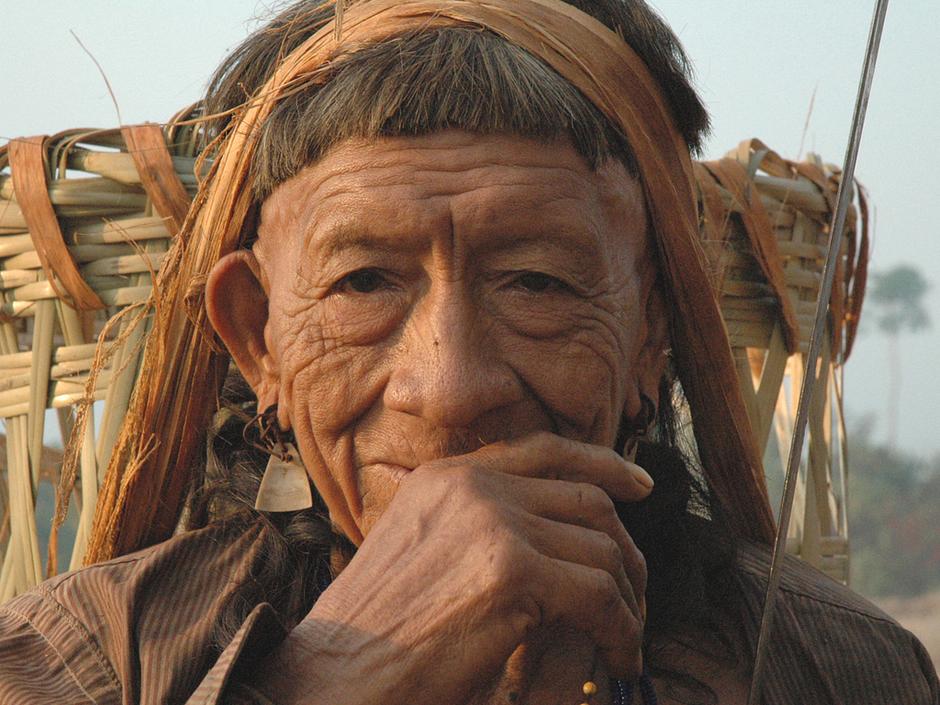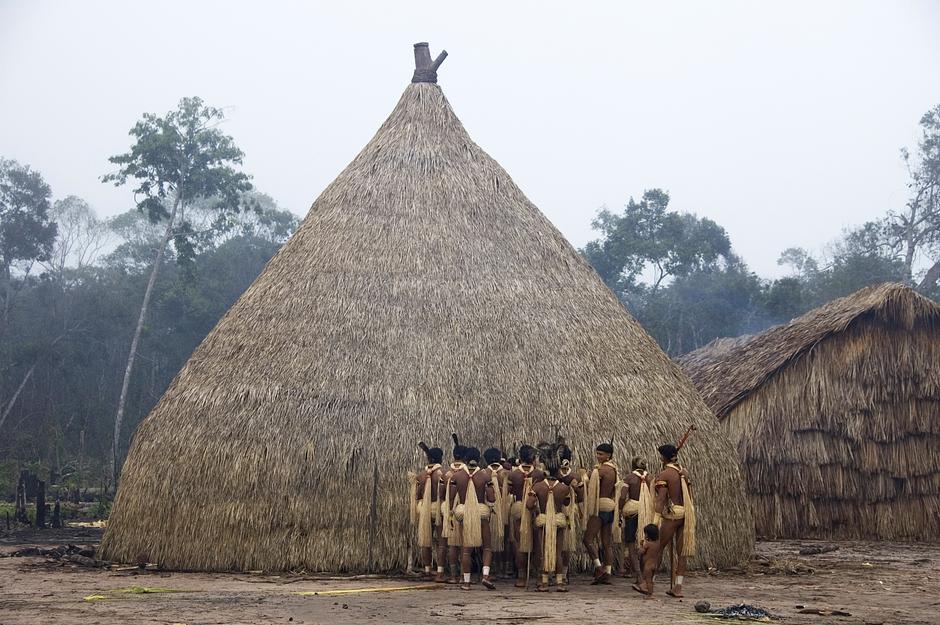Fishermen of Amazonia
The state government of Mato Grosso in Brazil is building a series of dams on the Juruena river. The dams threaten the Enawene Nawe tribe, the fish they eat and the sacred Yãkwa ritual.
The Enawene Nawe are one of very few tribes in the world who do not eat red meat.
They are expert fishermen. In the dry season, they catch fish with a poison called timbó, made from the juice of a woody vine.
Bundles of vines are pounded in the water, so releasing the poison and asphyxiating the fish, which then rise to the surface.
© Fiona Watson/Survival
In the wet season, when the hills of the Serra de Norte are shrouded in cloud, the longest indigenous ritual in Amazonia begins.
Yãkwa maintains the harmony of the world and is a four month exchange of food between the Enawene Nawe and the subterranean yakairiti spirits, who are the owners of fish and salt.
© Fiona Watson/Survival
At the beginning of Yãkwa, the Enawene Nawe build waitiwina (dams) across Adowina (the Rio Preto).
The dams are created from criss-crossing trunks. These form a latticework of interwoven timber, into which are inserted dozens of cone-shaped traps. Bark and vine are used as joints.
The Adowina is a river for waitiwina, said an Enawene Nawe man. The trees are tall and the land is good.
© Fiona Watson/Survival
Water is then sucked through the cones, so trapping fish as they swim downstream, having spawned in the river’s headwaters.
Yãkwa has been recognized by Brazil’s Ministry of Culture as part of the country’s cultural heritage.
© Fiona Watson/Survival
Fish are stored in small baskets woven from palm, and smoked in special smoke houses. They are then transported back to the village by canoe.
At the end of Yãkwa the dams are destroyed to ensure that fish can once more swim upriver to spawn.
© Fiona Watson/Survival
Salt, manioc and honey are exchanged with the yakairiti spirits during a lavish banquet.
The men’s waists are wrapped in palm fibres, their necklaces strung with red macaw, curassow and hawk feathers.
They move around a circle in slow steps, their chanting accompanied by the deep piping of bamboo flutes.
© Fiona Watson/Survival
The UN body UNESCO recently called for the urgent safeguarding of the Yãkwa ritual, referring to it as an intangible cultural heritage.
For the last few years however, the tribe has struggled to carry out Yãkwa, due to the decline in fish stocks from deforestation and hydro-electric dam construction.
© Fiona Watson/Survival
The situation became so serious in 2009 that a dam construction company was forced to buy three thousand kilos of farmed fish to ensure the tribe’s survival.
When I was a small boy, I always came to the dams with my father, said Kawari, an Enawene Nawe elder.
We let the fish go up the river to lay their eggs. But if hydro-electric dams are built all the eggs will disappear and the fish will die.
© Fiona Watson/Survival
The tribe has not given their consent for hydro-electric dam construction – such as the Telegrafica dam pictured above – or for the deforestation of their land by cattle ranchers.
Stephen Corry, Director of Survival International, said, It is a bitter irony that while Yãkwa is now recognized as part of Brazil’s cultural heritage, the ritual could very soon cease to exist.
© Survival International
We didn’t know the white people were going to take our land. We didn’t know anything about deforestation.
We didn’t know about the laws of the white men.
© Fiona Watson/Survival
The Enawene Nawe are lobbying for the Rio Preto area to be recognized as belonging to the tribe, and for the removal of the ranchers.
The Rio Preto is vital for our survival. Why do the ranchers claim it is theirs?
Do they know the first names of the Rio Preto? No. These are the river’s real names: Adowina, Hokosewina and Kayawinalo.
And we, the Enawene Nawe, are the real owners.
© Fiona Watson/Survival
My knowledge is ancient. I have known about these things for a long time.
It was not recently that I knew the Adowina, it is from a very long time ago.
It was not recently that I was born.
Kawari, Enawene Nawe elder.
© Fiona Watson/Survival
In the first light of dawn, Enawene Nawe men gather outside haiti: the house of sacred flutes.
They have recently returned from camps in the rainforest, in order to celebrate the most important fishing ceremony of the year: the Yãkwa banquet.
© Fiona Watson/Survival
Other galleries

“We, the People” 2020 Calendar
Discover a new tribal portrait each month with the Survival International “We...
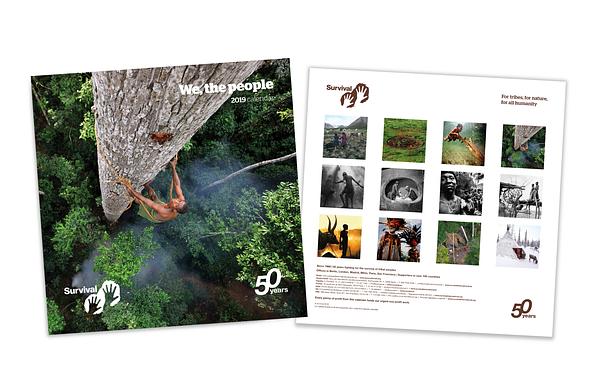
“We, the People” 2019 - The 50th anniversary Calendar
Our “We, The People” 50th Anniversary Calendar features stunning portraits of...
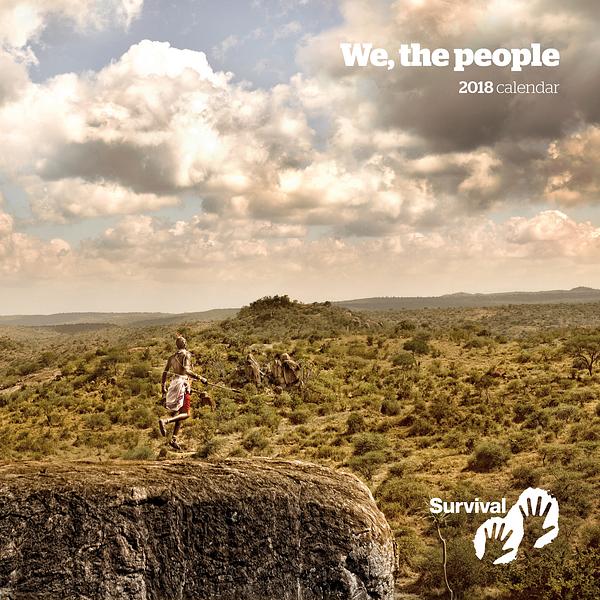
"We, the People" 2018 Calendar
Discover a new tribal portrait each month with the Survival International "We...

